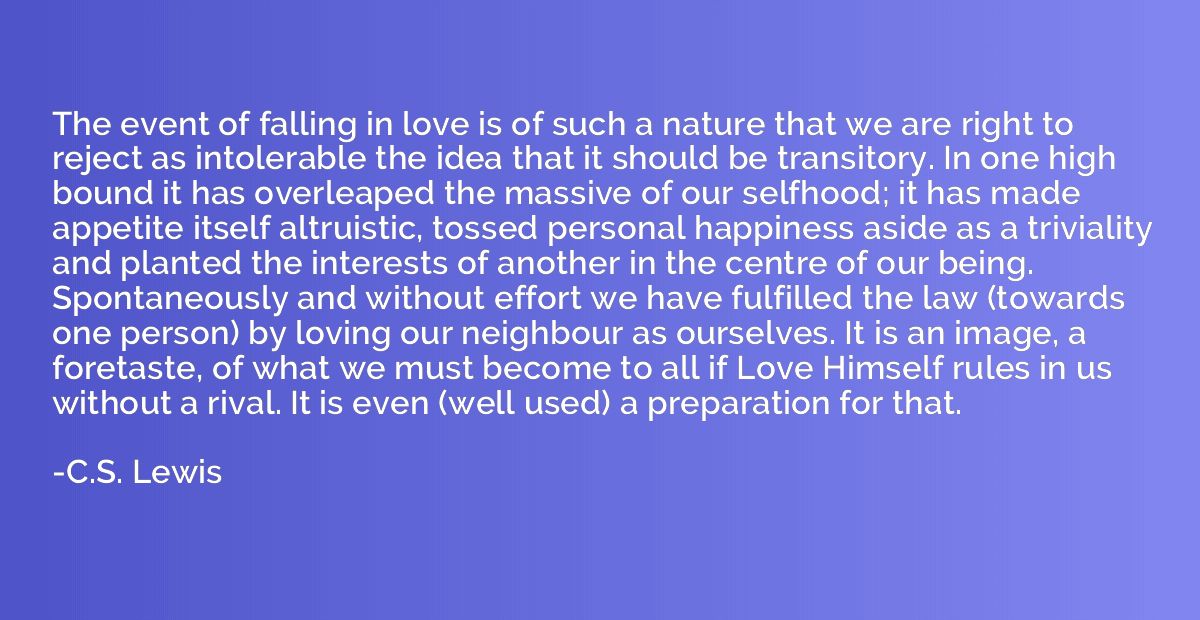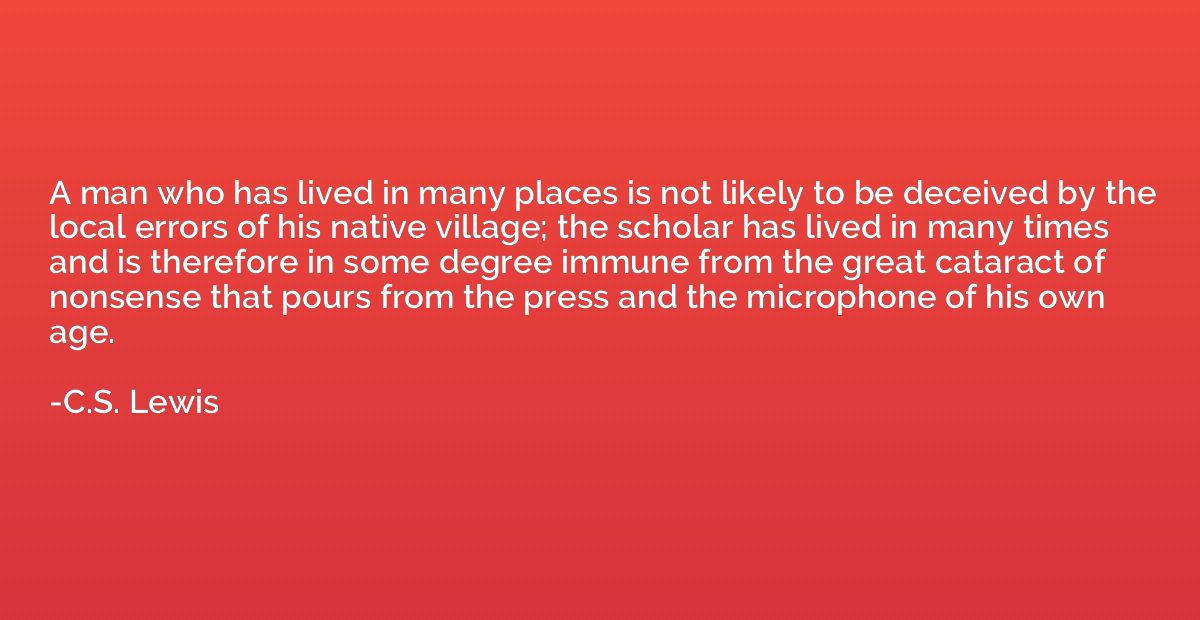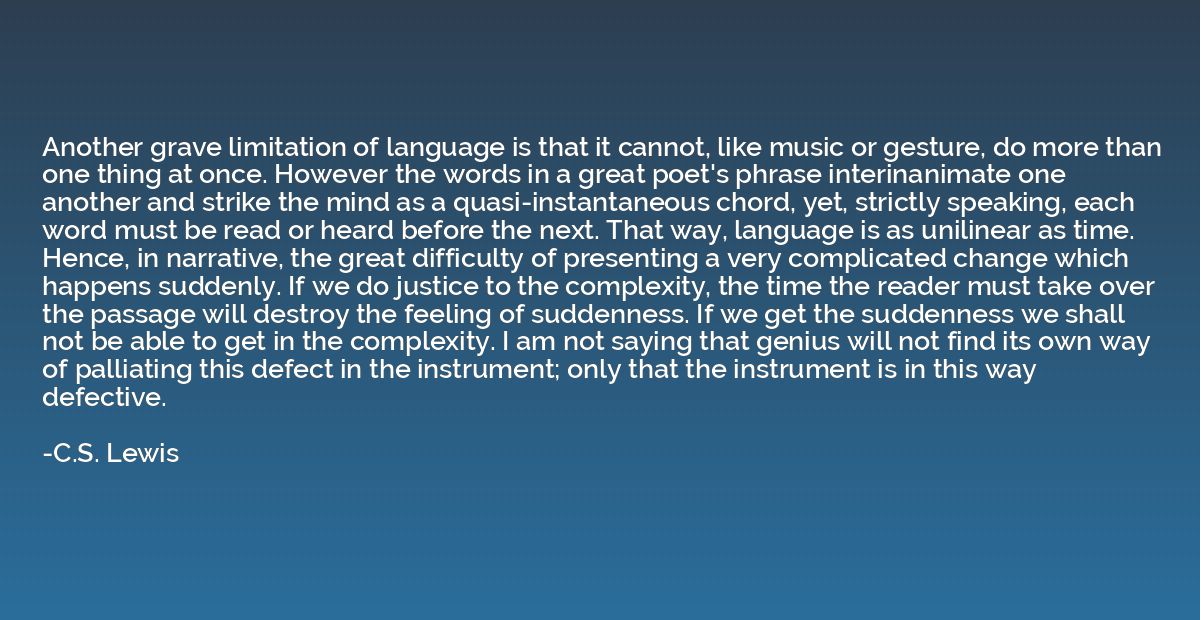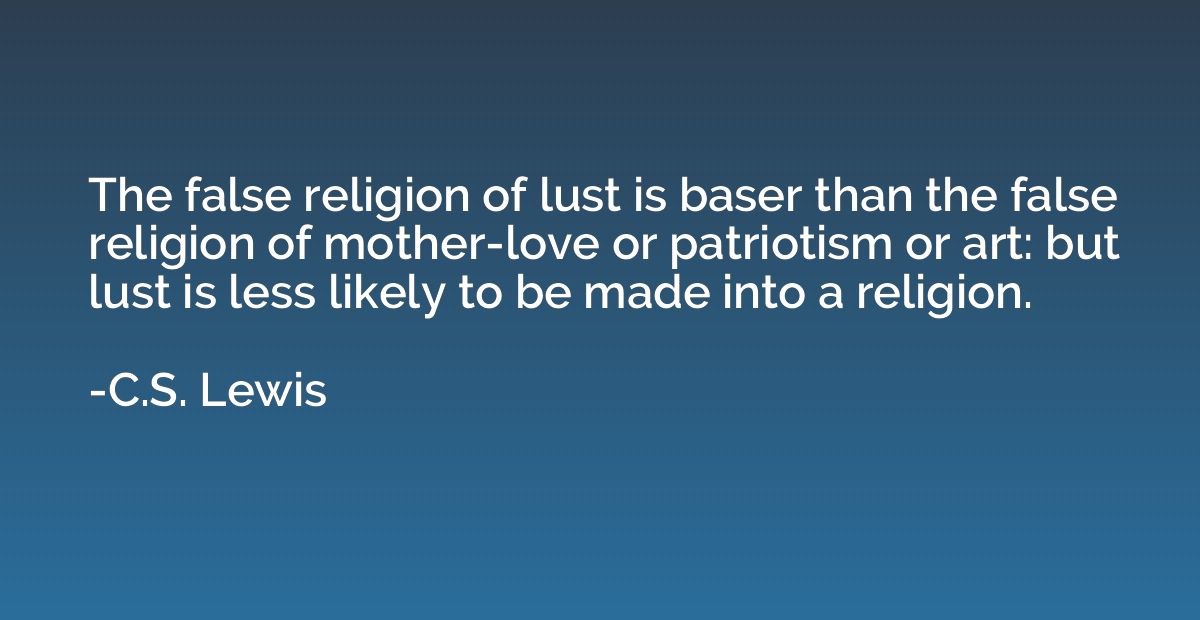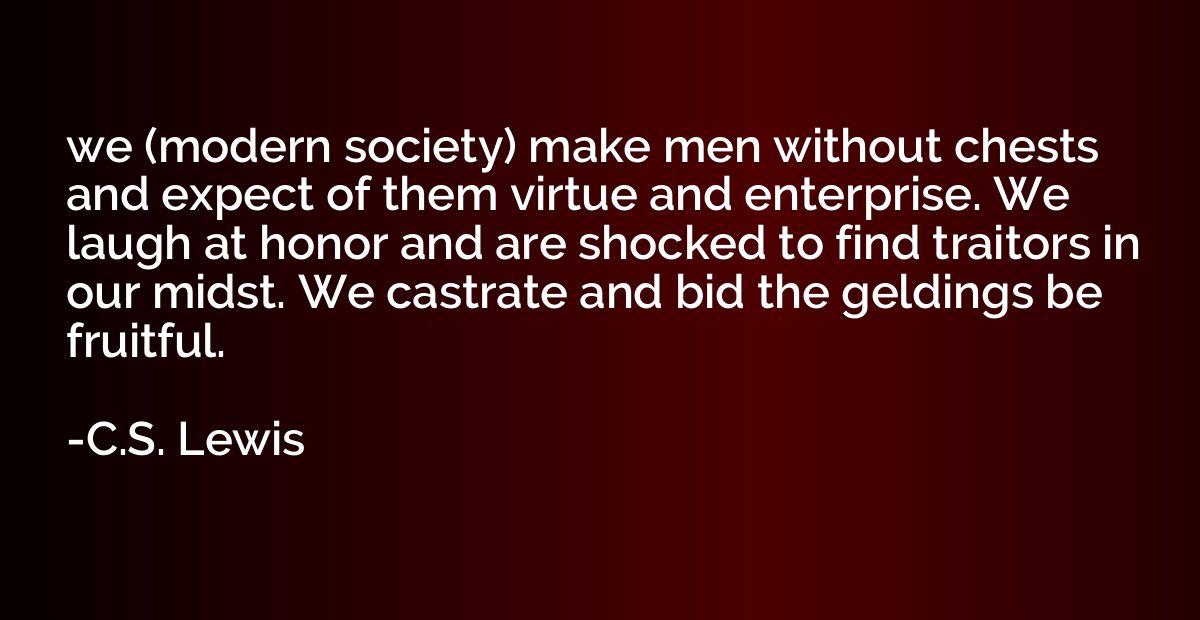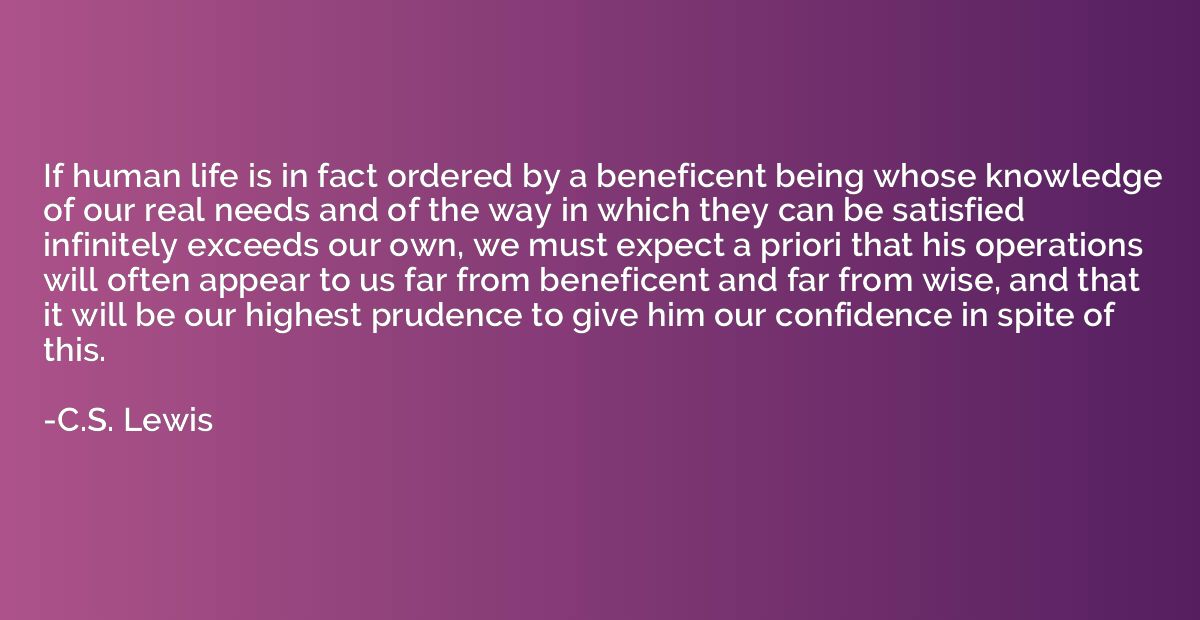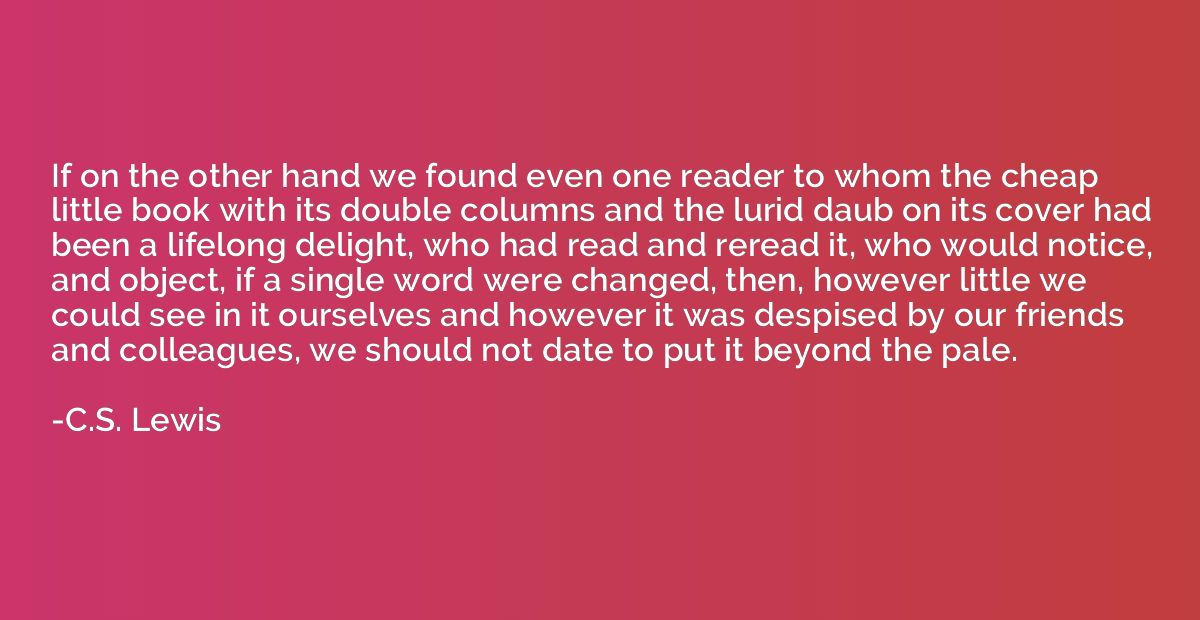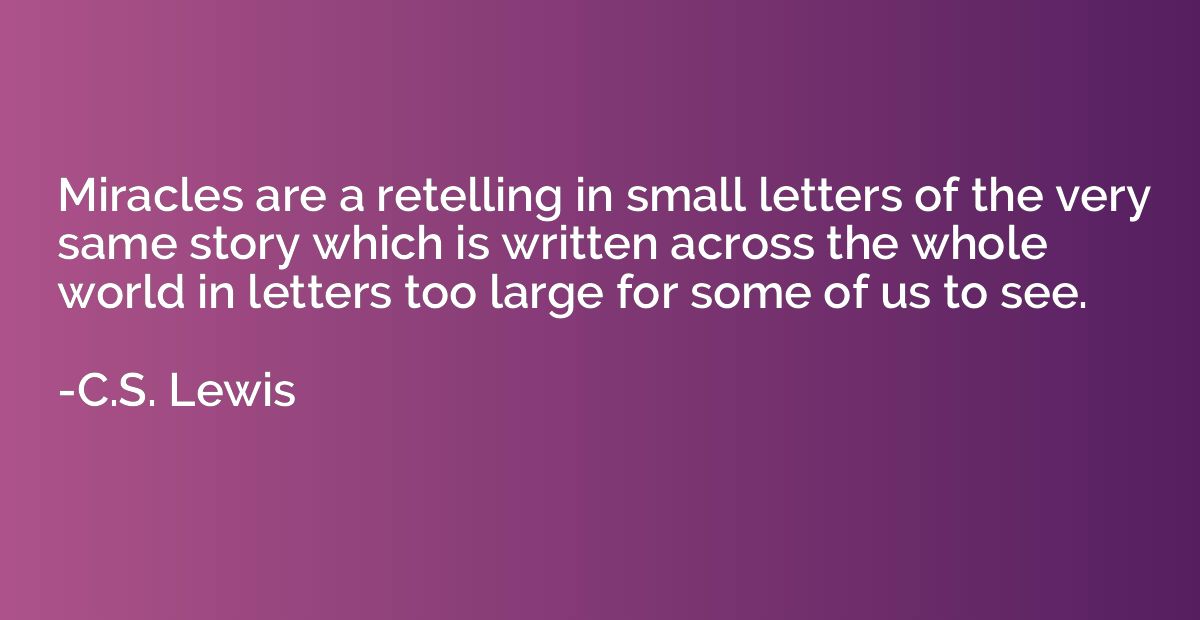C.S. Lewis Quotes
A collection of quotes by C.S. Lewis.
Clive Staples Lewis, commonly known as C.S. Lewis, was a highly influential British writer and scholar, born on November 29, 1898, in Belfast, Ireland. He is best known for his captivating fantasy series, "The Chronicles of Narnia." Lewis developed a deep love for storytelling and mythology from a young age, and this passion would shape his future work.
Lewis served as a professor of English literature at both Oxford University and Cambridge University. He gained widespread recognition for his expertise in medieval literature, becoming a renowned academic figure. In addition to his scholarly pursuits, Lewis penned numerous works of fiction, non-fiction, and essays, exploring various genres such as theology, Christian apologetics, and allegorical fiction.
His most notable literary achievement, "The Chronicles of Narnia," consists of seven books that continue to enchant readers of all ages. Published between 1950 and 1956, this beloved series has sold millions of copies worldwide and has been adapted into multiple films, further cementing Lewis's status as a celebrated author.
Central to Lewis's writing was his strong Christian faith, which infused his stories and informed his persuasive works on Christianity. Still, many of his works have garnered critical acclaim and readership beyond religious circles, appealing to individuals from diverse backgrounds due to their timeless themes, vivid imagination, and masterful storytelling.
C.S. Lewis passed away on November 22, 1963, leaving an enduring legacy as one of the most respected and beloved writers of the twentieth century. His works continue to captivate generations, inspiring readers to explore the depths of imagination, faith, and the power of good storytelling.





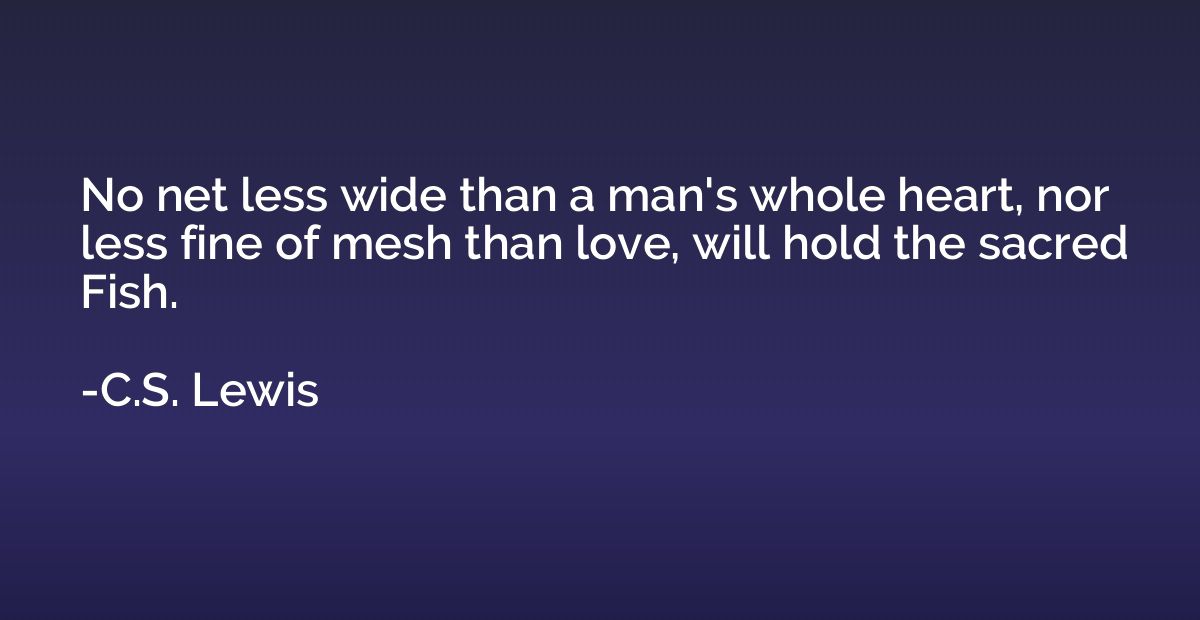
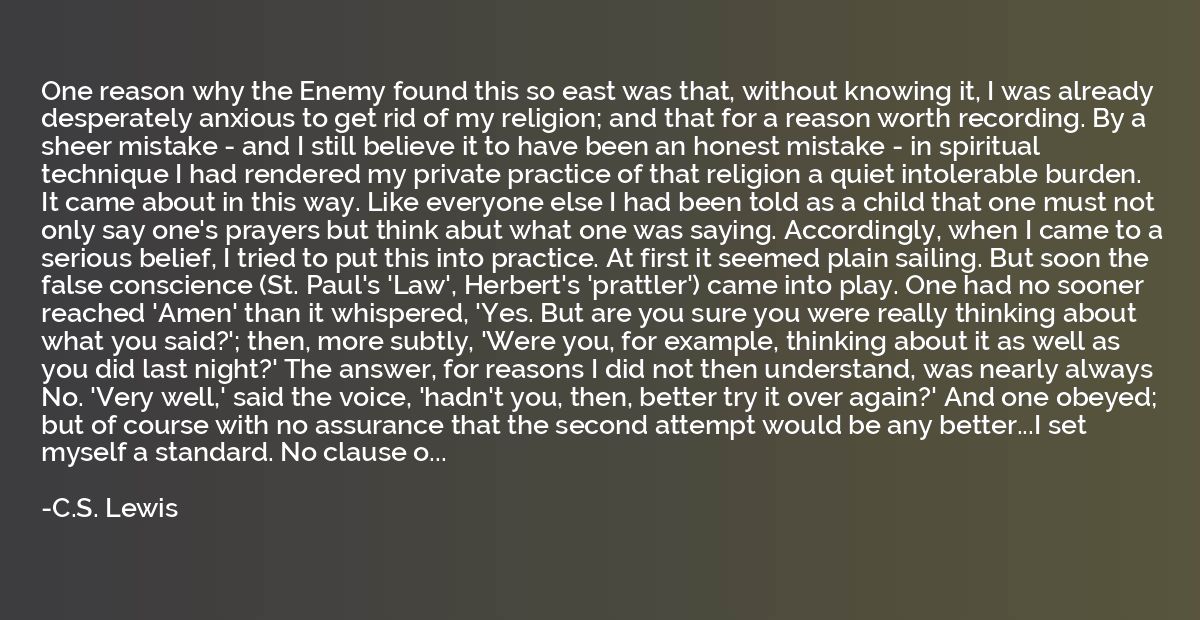
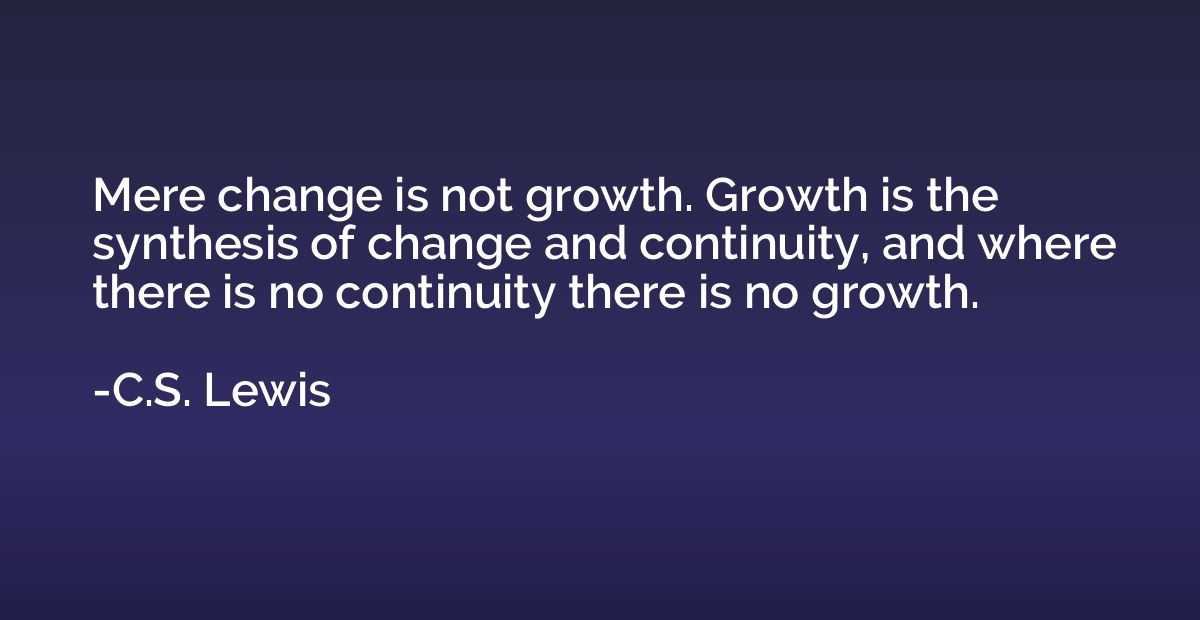
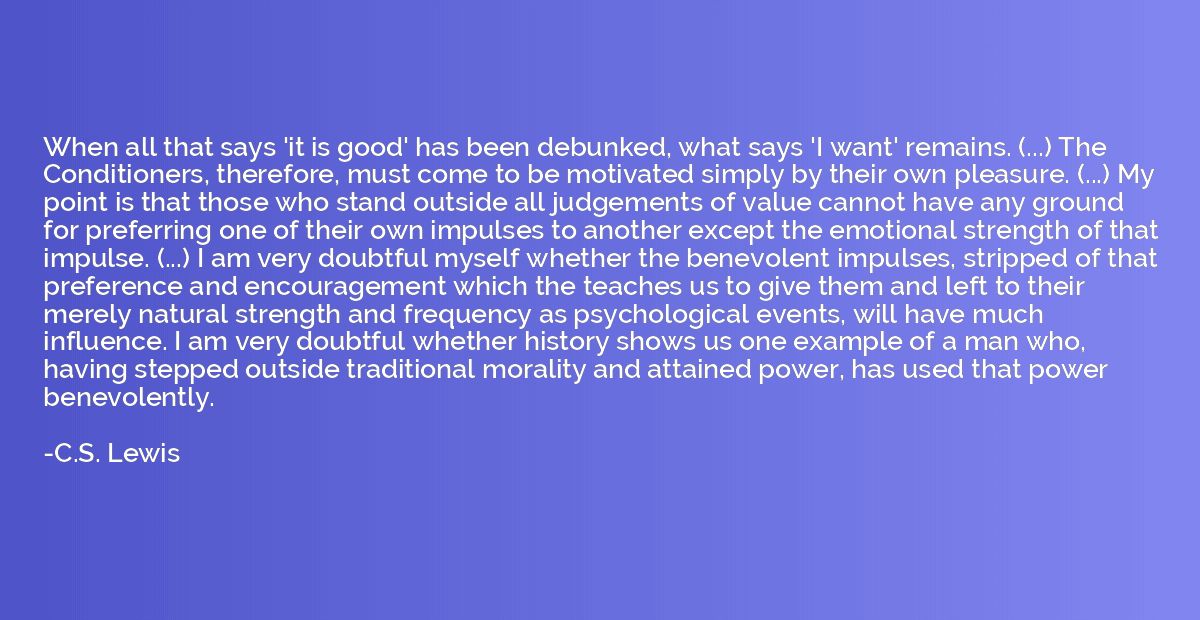

![At all ages, if [fantasy and myth] is used well by the autho](https://quotation.io/quotes/ages-fantasy-myth-used-well-author-meets.jpg)

